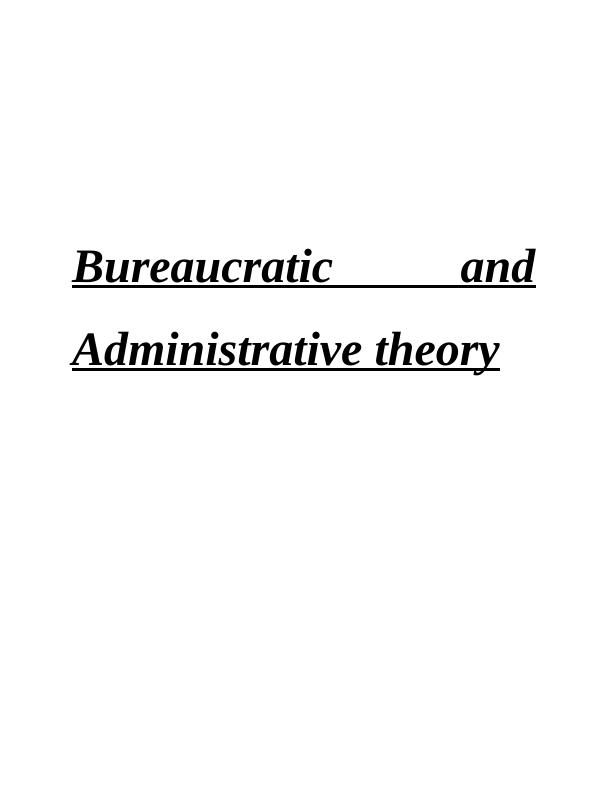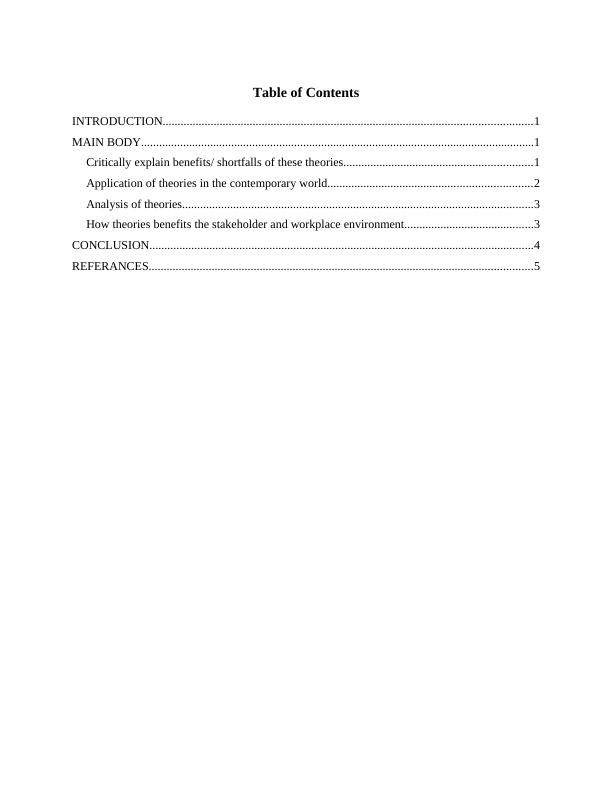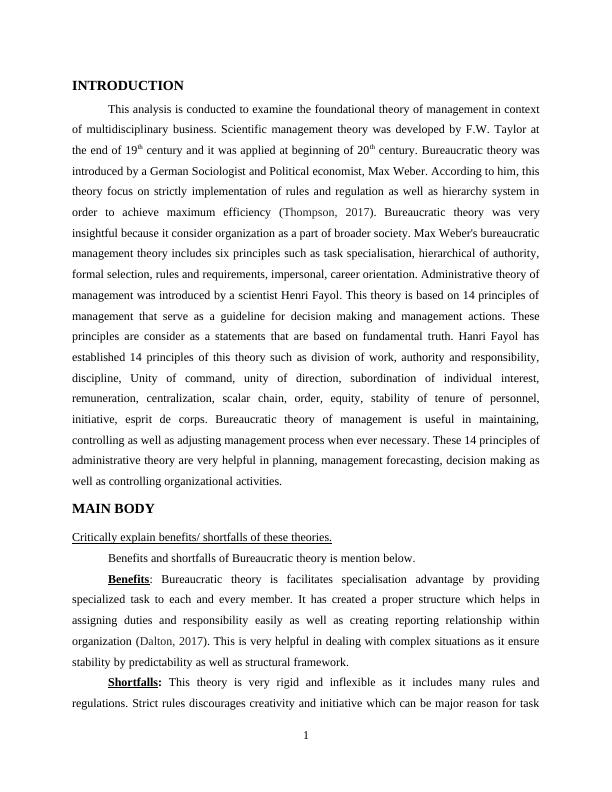Bureaucratic and Administrative theory Assignment
7 Pages1619 Words27 Views
Added on 2021-02-19
Bureaucratic and Administrative theory Assignment
Added on 2021-02-19
ShareRelated Documents
End of preview
Want to access all the pages? Upload your documents or become a member.
Management Theorists Assignment pdf
|6
|1386
|414
Bureaucratic and Administrative Management Analysis 2022
|14
|2140
|21
Organisation Theory/ Classical and Neo-Classical Origins-Present
|7
|2103
|456
Critical Theories and Analytical Perspectives in Education
|18
|7094
|56
Leadership and Management for Service Industries (pdf)
|10
|2341
|328
Organisation Theory: Classical and Neoclassical Approaches, Contemporary Marketing, Japanese Approach, Organizational Learning and Culture Excellence
|8
|2696
|254



